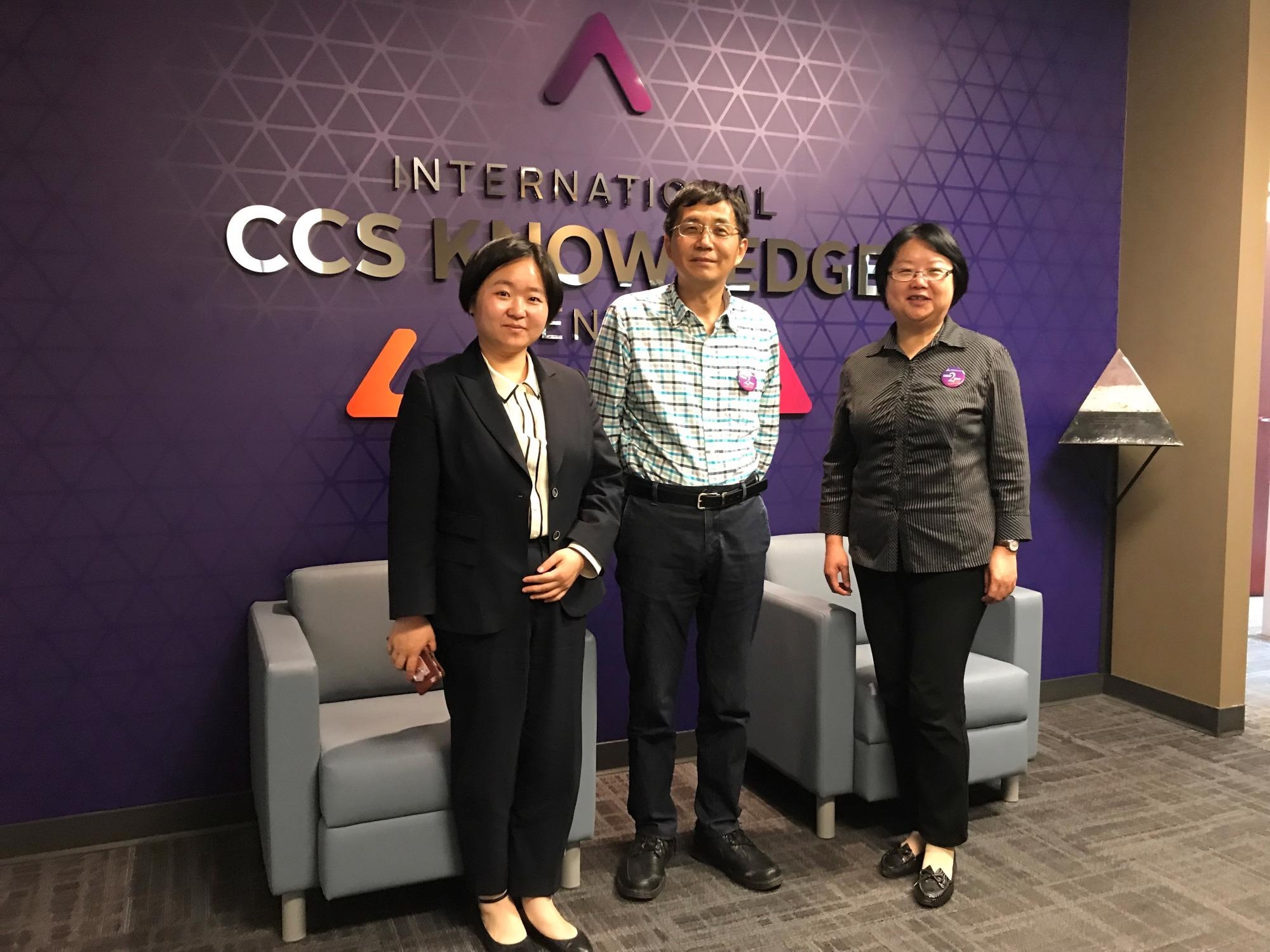Jul 9 2021
A new collaboration between the China Building Materials Academy, (CBMA) and Canadian based, International CCS Knowledge Centre (Knowledge Centre) will see simultaneous advancements in understanding and knowledge sharing of carbon capture technology designed specifically to see substantial emission reductions from the global cement industry.
 Members Dr. Wang, Lan (the CCUS project leader), Dr. Liu, Sr. Engineer, Ms. Zhao, Director for R&D pose for a photo during a May 2018 visit to the International CCS Knowledge Centre to discuss CCS on cement in China. Image Credit: International CCS Knowledge Centre
Members Dr. Wang, Lan (the CCUS project leader), Dr. Liu, Sr. Engineer, Ms. Zhao, Director for R&D pose for a photo during a May 2018 visit to the International CCS Knowledge Centre to discuss CCS on cement in China. Image Credit: International CCS Knowledge Centre
The first initiative under the agreement, Carbon Capture Use Piloting with Cement Kiln Project will aid CBMA in applying the Knowledge Centre’s model and Front End Engineering Design (FEED) of a test platform - which has a carbon dioxide (CO2) capture capacity of approximately 155 kg CO2/per day. The project will be built and piloted on a carbon capture system that utilizes the post combustion flue gas from a producing cement kiln.
The Knowledge Centre will have an observer role to learn and gain insight on the characteristics of a cement kiln operation and its integration with a post combustion carbon capture system. The agreement grants the Knowledge Centre access to the operational data, such as further design, testing, data based on the modelling, emission-related information, and any improvements made to the CO2 capture test platform.
This collaboration agreement is part of a bilateral science and technology cooperation between Canada and China, the China-Canada Science & Technology Cooperative Action Plan. The agreement also syncs with goals of the Chinese government to achieve carbon peaking before 2030 and carbon neutrality before 2060 with efforts of the cement industry in China to accelerate innovation in low carbon technologies.
Through the carbon capture pilot platform, the CBMA is expected to adapt the application for potential scale-up to commercial demonstration with know-how that could be applied across the sizable fleet of China National Building Materials Ltd. (CNBM), the world’s largest cement producer and the parent of CBMA.
The Knowledge Centre is currently completing a feasibility study on a full-scaled post-combustion carbon capture system on Lehigh’s Cement plant in Edmonton, Canada by applying the same model based on large-scale CCS experiences from the commercial coal-fired power plant, at the famed Canadian based Boundary Dam 3 CCS Facility.
Quotes
The International Knowledge Centre is proud to be a partner in assisting the CBMA on its CCS development and deployment journey to help China realize its ambitious goals of carbon peaking and carbon neutrality, which is positive for the world.
Conway Nelson, VP Strategy & Stakeholder Relations, International CCS Knowledge Centre
The cement industry could only achieve carbon neutrality by carbon capture approaches. Deep GHG emission reduction objectives can only be achieved by adhering to the decarbonization technology route, by applying CCS technologies to capture the carbon dioxide emissions from various aspects of the production process.
Chairman Zhou Yuxian, Chairman of China Building Materials Group (CNBM)